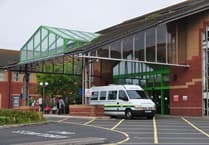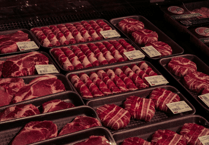Drivers of 4x4 vehicles are being encouraged to help emergency services respond to any issues with snow this winter.
And a public campaign to warn other drivers to take snow warnings more seriously has been discussed.
A report before the council’s Corporate, Infrastructure and Regulatory Services Scrutiny Committee this week (Nov 26) said a coordinated approach to encourage potential membership of organised 4×4 groups has not yet been developed, although tweets to direct individuals with suitable vehicles towards Devon and Cornwall’s 4×4 Response have been sent.
Another recommendation from the cabinet was to launch a ‘consequences based’ public education campaign around the risks of driving in snow and extreme weather and to better educate the public.
A spokesperson for the council said: ‘In light of last winter’s adverse weather conditions across the county, including the Beast from the East, a task group found that members of the public ignored the widespread and accurate warnings from the weather forecasters and the media about the dangers of driving in such conditions.
‘This resulted in vehicles becoming stranded and an increased risk to the public and emergency services and other workers.’
The report to the council confirmed its gritting policy will be virtually identical to last year’s.
Meg Booth, Chief Officer for Highways, Infrastructure Development and Waste, said that only minor changes are being made to the ‘primary salting network’.
Back in April, the council’s cabinet agreed there should be discussions with the Clinical Commissioning Groups to consider amending its salting networks to include access to all Devon GP surgeries. Mrs Booth said that discussions have been held but the CCGs have not yet provided any information to justify a change to the salting network.
She said: ‘Therefore there will not be any changes this winter as the window of opportunity has passed.’
The ‘primary salting network’ this winter will again be made up of the major routes with the most vehicles, and also access to hospitals, ambulance stations, fire stations, other emergency service establishments, railway stations, airports and secondary schools.
The length of the 37 routes, which form the primary salting network, is 20 per cent of the road network but it covers around 70 per cent of traffic and access to 80 per cent of Devon’s population.
The primary salting network includes: all A and B roads, and C roads classified as high-speed routes; routes with February two-way traffic greater than 1000 vehicles per day; main access route to towns and villages with a population of 500 or more; main access routes to 24-hour emergency services premises, including ambulance stations, full-time and retained fire stations, hospitals with 24-hour casualty departments and 24-hour police stations; main access routes to strategic cottage and community hospitals; main access to secondary schools; major bus routes, access to regional airports and railway stations; and the bus loops of park and ride sites.
Concerns were also raised by the cabinet about gritting of cycle paths and whether they had to reconsider winter treatment and gritting if and when journey numbers significantly increase to around 1,000 a day, in line with the road network.
Roads which have more than 1,000 vehicles per day are gritted, but the highest use cycle paths in Exeter are the Haven Banks and Riverside Valley Park routes, which according to January 2018 data, receive an average of 613 and 586 cycle journeys a day respectively during winter, lower than the minimum requirement for roads to be treated.
The report said cycle path numbers will be monitored this winter and then reviewed.




